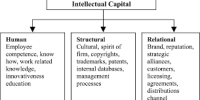Will you employ a bunch of ineffective salesmen like Oracle does? I had my first notable encounter with Eliot Horowitz at this point in our relationship. Eliot founded MongoDB and served as its chief technology officer during the time I was interviewing to become the company’s president. The founding team of MongoDB had created a product that developers liked, and it was precisely this developer love that would fuel much of the company’s quick development. Product-led growth was far from the widespread catchphrase it is today.
The connection between a founder, like Eliot, and a hired CEO, as well as the critical elements required for that partnership to thrive, are my theme today; not product-led growth. That dynamic has always been significant, but in today’s more volatile, rapidly evolving technological marketplaces, concentrating on it is essential. Eliot asked a question that appeared to be about company concepts and recruiting salespeople.
But it went much farther than that: Our conversation was a real-world test of how we would collaborate, going to the core of the deciding relationship between a CEO and a founder of a firm. We traveled a lot of ground that day. These are all legitimate concerns and illustrations of possible conflict between a technical founder and a new leader appointed from the outside. The ultimate success of a business may depend on how a founder and CEO resolve these conflicting issues.
Product-market fit plus, Even though a startup can experience many problems, for it to succeed, two things must go well: first, the product must fit the market well, which is almost always the responsibility of the founder(s), and second, the company must run smoothly, which is occasionally the responsibility of a hired CEO. Founders nearly always have the first idea for the product and the market. They founded the business because they recognized a need for improvement and had a plan on how to execute it. You have the basis for a product and market fit when that concept strikes a chord with a sizable audience. Without that, there would be no business.
However, the first product-market fit is far from sufficient. In the end, a firm needs to execute on engineering, sales, customer success, and marketing. A company also requires capital and a workforce. In a few instances, a creator has expressed interest in and initial ability for all of these fields. Other times, they don’t, and in those circumstances, they require a partner to oversee business operations. It was a terrific experience for me to work at MongoDB for four years, first as president and then as CEO. The business saw rapid growth and altered both the database industry and the way web application developers created websites.
The fact that we helped lay some of the groundwork for a tremendously successful cloud company that changed how businesses provided and consumed infrastructure software may be more significant. Without the founders’ and my solid partnership—especially with Eliot and Dwight Merriman—we would not have been able to do it (founder and initial CEO, who eventually became chairman). Decisions didn’t easily fall into operational for me and product categories for them.
















